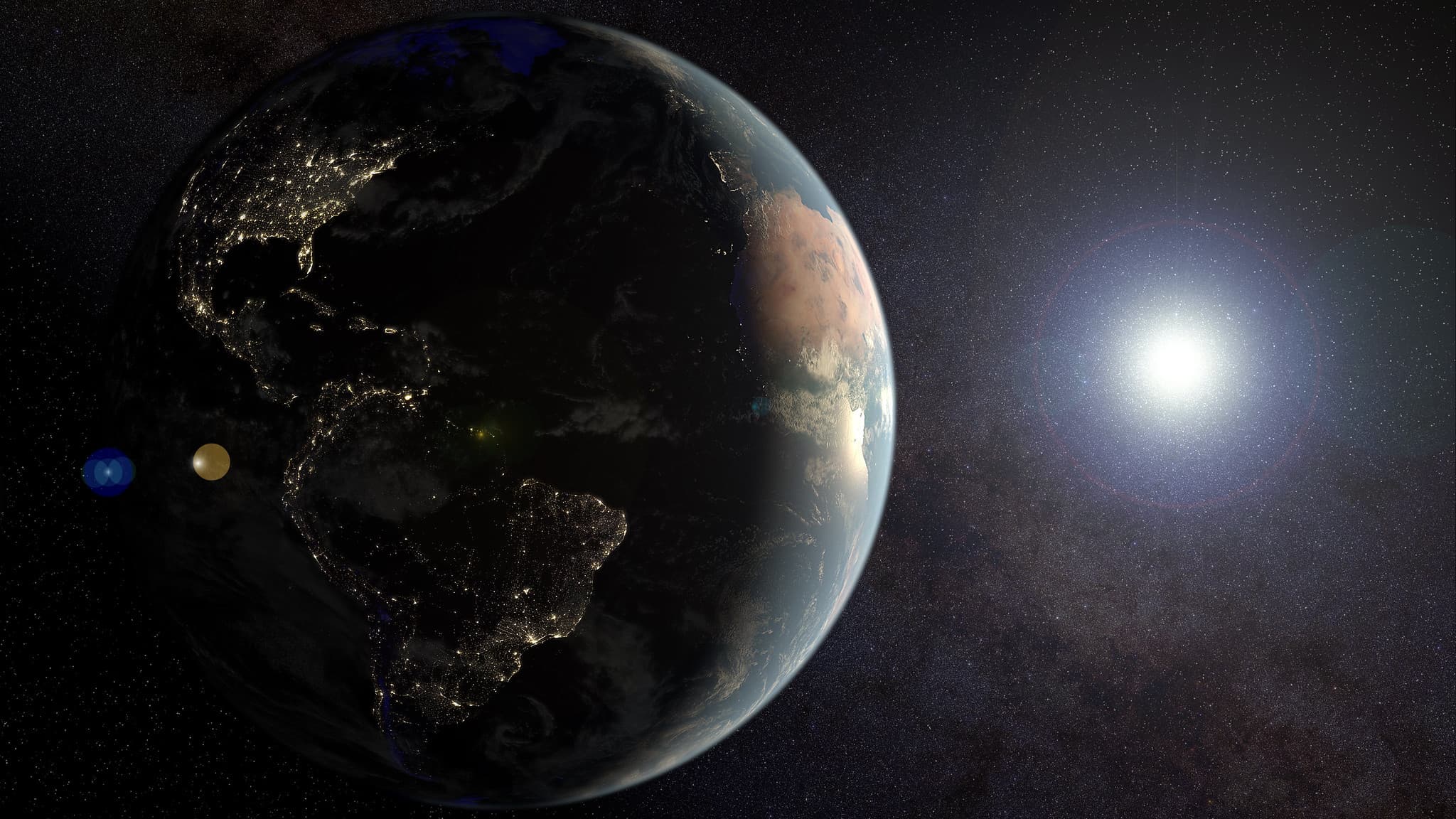Some scientists claim that the planet Earth rotated faster during the year 2020. However, others advocate relativity and believe that this is a natural phenomenon, not a trend.
Many scientists agreed that, in recent days, the Earth has never revolved as fast as it did in 2020. And according to them this year, the planet has broken the previous record for the shortest day by 28 times, which dates back to 2005. It would have been possible. To spin 1.4602ms faster during July 19, 2020, and could break that record again in 2021.
“It is certain that the Earth has not revolved as fast as it does now in the past fifty years,” the newspaper asserts. The Telegraph Peter Wibberley is a researcher at the British National Laboratory (National Physical Laboratory).
Take a second of the world’s clocks?
“We’ve seen an acceleration in the Earth’s rotation since 2016 and don’t really know how to explain that,” he tells Point Christian Bisoir, astronomer in the Division of Reference Systems for Time and Space (SYRTE) at the Paris Observatory.
If the Earth’s rotation speed continues to increase, British scientist Peter Weberley believes that one second of world clocks could be taken out so that it can properly align with the Earth’s rotation. But he admits that it is still too early to say whether this is necessary.
“If this acceleration continues at the current rate of 0.3 milliseconds per year, in four to five years, I might have to subtract a second from the legal time,” says the weekly astronomer. French, guardian of UTC, a time scale based on Atomic clocks.
However, this should never be compensated for by more than one second compared to the time of the Earth’s rotation, under an international agreement dating back to the 1970s.
Normal changes in speed
Within the scientific community, others tend to relativize the phenomenon and consider these statements exaggerated. First of all, even though the Earth has been orbiting at a higher speed for several years now, the ‘saved’ time is just too small to be great on our scale. It might be dangerous to see this as a general trend.
In fact, the speed of the Earth’s rotation varies constantly, and according to many factors such as the movement of the oceans, the natural gravity of the moon, the motions of the molten core or the atmospheric pressure. So it is normal for the average length of a day to experience seasonal fluctuations of a fraction of a millisecond.
Online science magazine confirmed that “(the speed of rotation) of the Earth has been fairly stable during the year 2020.” inverse James O-Donogo, planetary specialist at the Japan Aerospace Exploration Agency. “The skew result was very low in 2020 and 2021. In 2020 the average length of a day changed by 0.00127 seconds, or 1.27 milliseconds, compared to previous years which also amounted to a few hundred milliseconds.”
The Earth is periodically speeding up or slowing down according to all these competing forces, he explains inverse Matteo Dombury is a professor in the physics department at the University of Alberta, Canada. “There are many different phenomena that affect the Earth’s rotation, and they all occur on different time scales and they are not something we can observe or even discover,” he says.
“It is much easier to look at a trend with a magnifying glass and make an extrapolation. Nevertheless, it is a good idea to know the physical phenomena that cause these changes and examine them in the long term,” says a Canadian scientist. For him, the fact that the planet is turning on itself faster “does not translate to an aspect of the change under way, it is simply basic physics.”

“Professional food nerd. Internet scholar. Typical bacon buff. Passionate creator.”





